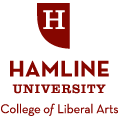Date of Award
Spring 2016
Degree Type
Honors Project
School
College of Liberal Arts
First Advisor
Ryan LeCount
Abstract
Birth order is an extensively studied and contested concept in social science research. It has been used to examine topics such as personality (Curtis and Donald, 1993; Harris, 2000; Krueger et al., 2000), risk-taking behavior (Krause et al., 2014; Piliavin and Charng, 1990), context-specific learning (Harris, 2000), relationships (Eckstein et al., 2010; Harris, 2000; Kalliopuska, 1984; Manaster, 1977; Maner and Gaillot, 2007; Radley and Kennedy, 1995; Salmon, 2003; Winterich et al, 2009), narcissism (Curtis and Donald, 1993), and prosociality (Kalliopuska, 1984; Krueger et al., 2000; Kurzban et al. 2015; Maner and Gaillot, 2007; Piliavin and Charng, 1990; Radley and Kennedy, 1995; Salmon, 2003; Simmons, 1991; Warneken and Tomasello, 2009; Winterich et al, 2009). While there has been a considerable amount of research done on birth order, there has been little to no research that has examined the influence of birth order on altruistic attitudes. Previous research on prosocial behavior has shown that middle borns are likely to express less positive attitudes toward family than first borns or last borns (Salmon, 2003), and oldest children are more likely to express helping behavior toward kin than nonkin (Maner and Gailliot, 2007). The purpose of this study was to investigate the effect of birth order on a person’s attitudes towards altruism. Analyses evaluated different factors in altruistic attitudes, such as risk taking, family size, gender, and rewards. Results indicated that birth order does have an effect on certain attitude measures of altruism and as well as effects for race and gender.
Recommended Citation
Smith, Deanna R., "The Effect of Birth Order on Attitudes Toward Altruism" (2016). Departmental Honors Projects. 50.
https://digitalcommons.hamline.edu/dhp/50
dc_type
text
dc_publisher
DigitalCommons@Hamline
dc_format
application/pdf
dc_source
Departmental Honors Project

